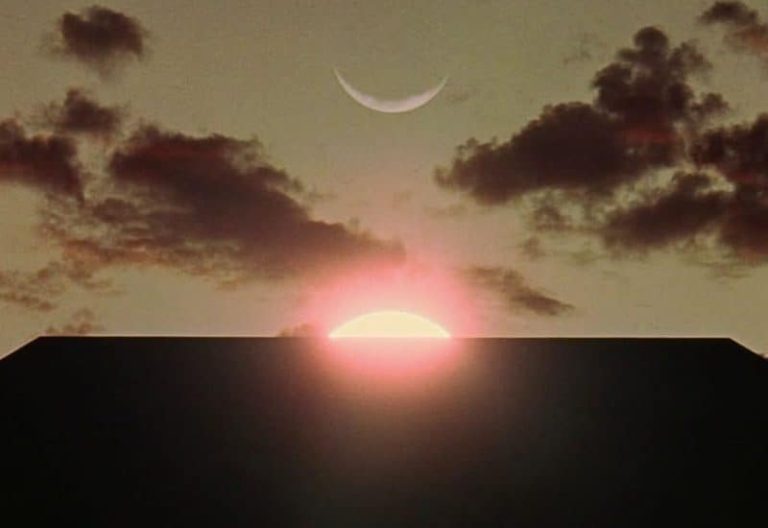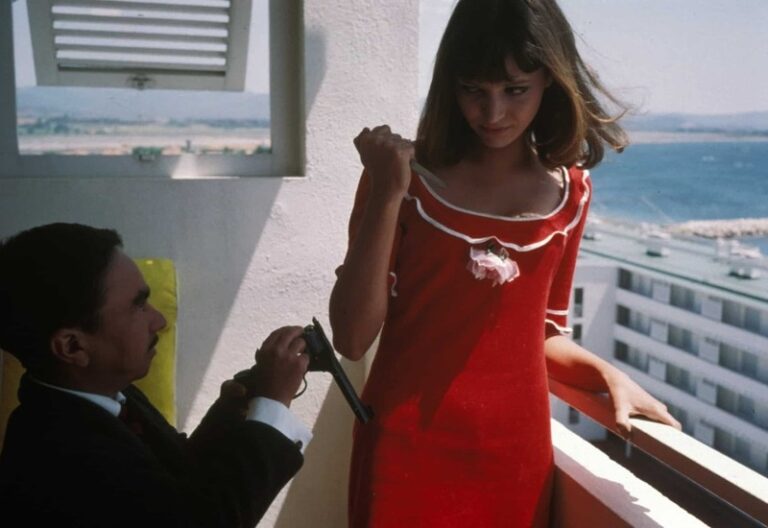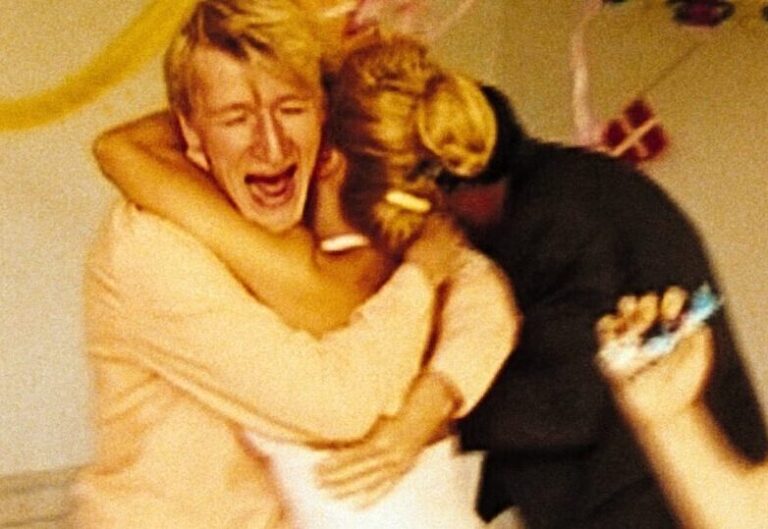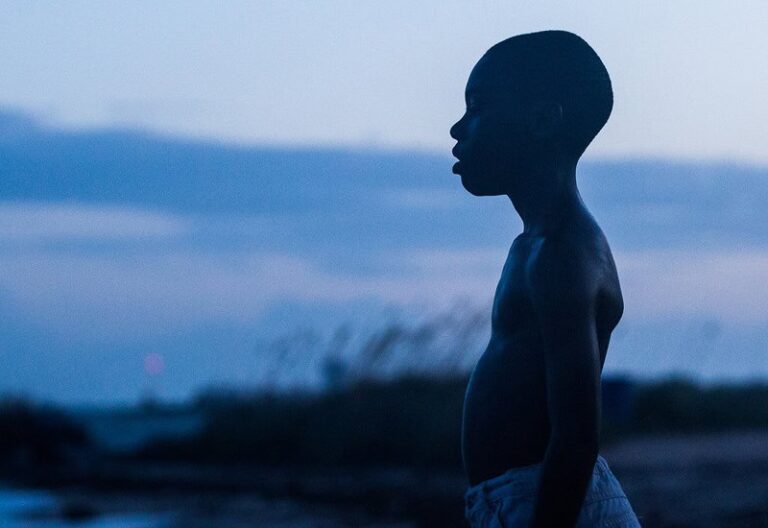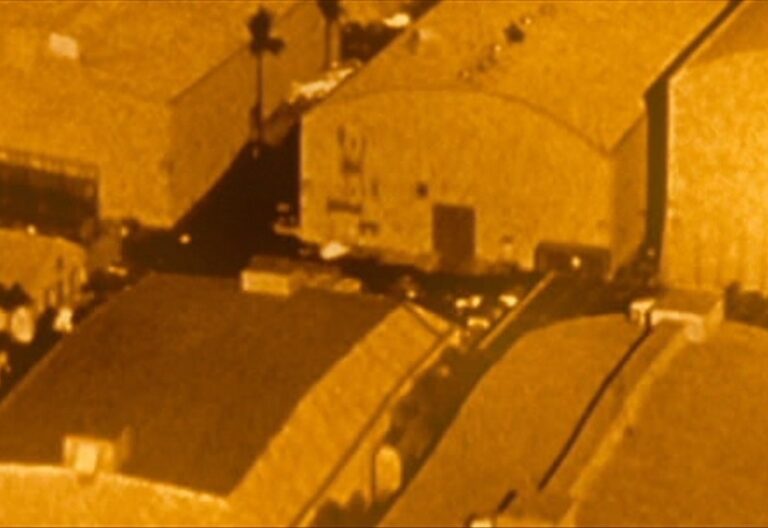dogme 95
est. 1995 – 2005
In the mid-1990s, a group of Danish filmmakers, led by the visionary minds of Lars von Trier and Thomas Vinterberg, embarked on a journey that would disrupt the established norms of filmmaking. This movement, famously known as Dogme 95, emerged as a passionate rebellion against the glossy, high-budget productions that often dominated the industry.
Published by: CinemaWaves Team | Filed Under: Film Movements
Origins of Dogme 95
At the heart of the movement was the belief that cinema had become overly obsessed with special effects, technical tricks, and superficial storytelling, losing its focus on authentic, human experiences. The founders of Dogme 95 sought to strip cinema down to its most essential elements by rejecting artificiality and by promoting a raw, naturalistic approach to filmmaking. This led to the creation of the “Vow of Chastity,” a manifesto that laid out strict rules to follow, including restrictions on the use of sets, props, and special effects. By doing so, the movement aimed to return the focus to story, acting, and emotion, making films more truthful and immediate.
The historical context in which Dogme 95 emerged was one of growing disillusionment with Hollywood’s blockbuster-driven model and the rising influence of digital effects in the 1990s. Filmmakers like von Trier and Vinterberg felt that the increasingly commercialized industry had turned away from meaningful storytelling and had become more of a spectacle than an art form. At the same time, European cinema, particularly in countries like Denmark, was experiencing its own creative stagnation, as filmmakers struggled to compete with the dominance of American films. Dogme 95 was, in many ways, a response to this cultural and artistic crisis, seeking to create a new path for independent filmmakers who wanted to tell personal, realistic stories without the constraints of big-budget productions.
The movement gained international attention with the release of Vinterberg’s “The Celebration” (1998) and von Trier’s “The Idiots” (1998), which adhered to the Dogme principles and showed the power of minimalist filmmaking. Dogme 95’s influence quickly spread beyond Denmark, inspiring filmmakers around the world to embrace its ethos of simplicity and authenticity.
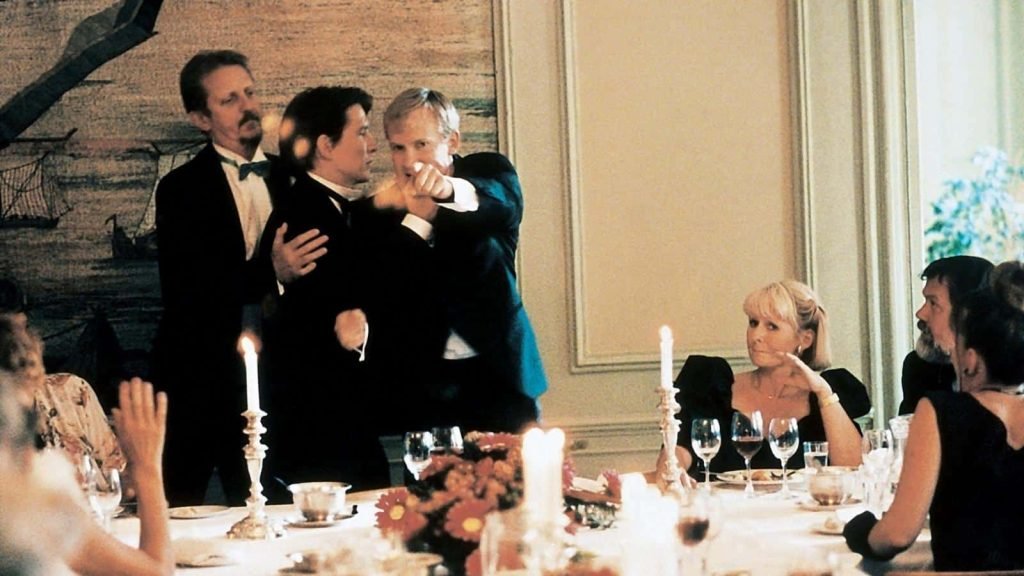
Dogme 95 Rules
Central to the Dogme 95 movement was the “Vow of Chastity“, a set of ten strict rules that filmmakers pledged to follow. Dogme 95 rules were designed to strip away the excesses of modern cinema and emphasize storytelling in its purest form. They are as followers:
1. Shooting location: The film must be shot on location, no sets are allowed.
2. Natural lighting: Only natural light sources are permitted for filming.
3. Handheld cameras: The use of handheld cameras is mandatory to achieve a sense of immediacy and intimacy.
4. Real sound: The sound must be recorded at the same time as the images are captured, with no additional sound or music added in post-production.
5. No superficial action: The film must not contain any superficial action, such as murders, weapons, or contrived plot devices.
6. No genre movies: The film must not be part of any established genre.
7. Temporal and geographical unity: The story must take place in the here and now, in the actual location where it is filmed.
8. Format: The film must be in color, using standard 35mm film.
9. Director as author: The director is the sole author of the film and should not be credited.
10. No special effects: The film must not contain any special effects or post-production modifications.
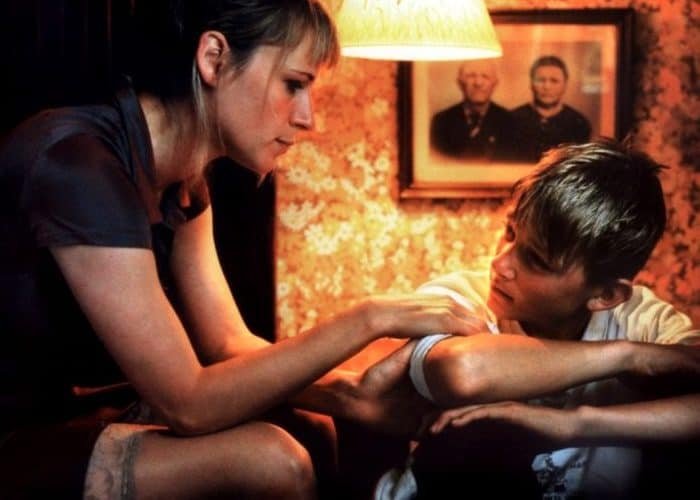

Important Dogme 95 Films and Directors
The first official Dogme film, directed by Thomas Vinterberg, “The Celebration” (1998) is a family drama that revolves around a family gathering celebrating the patriarch’s 60th birthday, unveiling deep-seated family secrets and traumas. Shot with handheld cameras, and adhering strictly to Dogme principles, it captures the raw and intense emotions of its characters. Its success established Dogme 95 as a significant force in the film world.
Next is infamous Lars von Trier, with his film “The Idiots” (1998). The film follows a group of individuals who engage in deliberate acts of idiocy as a form of societal rebellion. It explores themes of conformity, identity and societal norms. The documentary-style approach, natural lighting, and handheld camerawork contribute to its unfiltered and visceral quality. The film solidified Lars von Trier’s reputation as a provocateur in cinema.
Directed by Soren Kragh-Jacobsen, “Mifune” (1999) is a dark comedy that follows the life of a mentally disabled man after the death of his father. The film explores themes of love, societal expectations, and human connection. The film’s success highlighted the versatility of Dogme principles in various genres, proving that the movement could be applied to diverse narratives beyond the intense dramas for which it was initially recognized.
Legacy and Influence
of dogme 95
Refer to the Listed Films for the recommended works associated with the movement. Also, check out the rest of the Film Movements on our website.
In the ever-evolving landscape of cinema, there are movements that challenge the glitz and glamour of Hollywood and opt for a more authentic, unscripted approach. One such…
In the late 1960s and throughout the 1970s, until mid 1980s, a cinematic revolution unfolded in Hollywood that would forever change the landscape of the film. American New…
Or La Nouvelle Vague, is one of the most iconic and influential film movements in the history of cinema. Emerging in the late 1950s and flourishing throughout the 1960s…
With his first Dogme 95 film director Lars von Trier opens up a completely new film platform. With a mix of home-video and documentary styles the film tells a story…
Independent film, often called indie film, is produced outside the major studio system. Its roots can be traced back to the early 20th century, when filmmakers began seeking…
The studio system was a dominant force in Hollywood from the 1920s to the 1950s. It was characterized by a few major studios controlling all aspects of film production…


